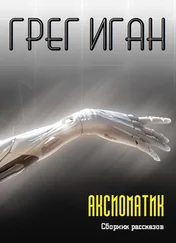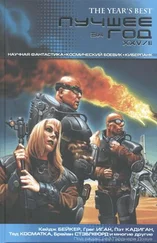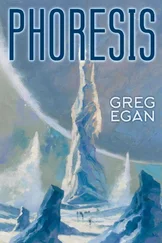Campbell shut down the laptop. I’d been looking for an opportunity to handle the machine, however briefly, without arousing his suspicion, but that clearly wasn’t going to happen, so as we walked out of the study I went for plan B.
“I’m feeling kind of…” I sat down abruptly on the floor of the hallway. After a moment, I fished my phone out of my pocket and held it up to him. “Would you mind calling me a taxi?”
“Yeah, sure.” He accepted the phone, and I cradled my head in my arms. Before he could dial the number, I started moaning softly. There was a long pause; he was probably weighing up the embarrassment factor of various alternatives.
Finally he said, “You can sleep here on the couch if you like.” I felt a genuine pang of sympathy for him; if some clown I barely knew had pulled a stunt like this on me, I would at least have made him promise to foot the cleaning bills if he threw up in the middle of the night.
In the middle of the night, I did make a trip to the bathroom, but I kept the sound effects restrained. Halfway through, I walked quietly to the study, crossed the room in the dark, and slapped a thin, transparent patch over the adhesive label that a service company had placed on the outside of the laptop years before. My addition would be invisible to the naked eye, and it would take a scalpel to prise it off. The relay that would communicate with the patch was larger, about the size of a coat button; I stuck it behind a bookshelf. Unless Campbell was planning to paint the room or put in new carpet, it would probably remain undetected for a couple of years, and I’d already prepaid a two year account with a local wireless internet provider.
I woke not long after dawn, but this un-Bacchanalian early rising was no risk to my cover; Campbell had left the curtains open so the full force of the morning sun struck me in the face, a result that was almost certainly deliberate. I tiptoed around the house for ten minutes or so, not wanting to seem too organized if anyone was listening, then left a scrawled note of thanks and apology on the coffee table by the couch, before letting myself out and heading for the cable car stop.
Down in the city, I sat in a café opposite the backpacker’s hostel and connected to the relay, which in turn had established a successful link with the polymer circuitry of the laptop patch. When noon came and went without Campbell logging on, I sent a message to Kate telling her that I was stuck in the bank for at least another day.
I passed the time browsing the news feeds and buying overpriced snacks; half of the café’s other patrons were doing the same. Finally, just after three o’clock, Campbell started up the laptop.
The patch couldn’t read his disk drive, but it could pick up currents flowing to and from the keyboard and the display, allowing it to deduce everything he typed and everything he saw. Capturing his password was easy. Better yet, once he was logged in he set about editing one of his files, extending his search program to a new class of models. As he scrolled back and forth, it wasn’t long before the patch’s screen shots encompassed the entire contents of the file he was working on.
He labored for more than two hours, debugging what he’d written, then set the program running. This creaky old twentieth century machine, which predated the whole internet-wide search for the defect, had already scored one direct hit on the far side; I just hoped this new class of models were all incompatible with the successful ones from a few days before.
Shortly afterward, the IR sensor in the patch told me that Campbell had left the room. The patch could induce currents in the keyboard connection; I could type into the machine as if I was right there. I started a new process window. The laptop wasn’t connected to the internet at all, except through my spyware, but it took me only fifteen minutes to display and record everything there was to see: a few library and header files that the main program depended on, and the data logs listing all of the searches so far. It would not have been hard to hack into the operating system and make provisions to corrupt any future searches, but I decided to wait until I had a better grasp of the whole situation. Even once I was back in Sydney, I’d be able to eavesdrop whenever the laptop was in use, and intervene whenever it was left unattended. I’d only stayed in Wellington in case there’d been a need to return to Campbell’s house in person.
When evening fell and I found myself with nothing urgent left to do, I didn’t call Kate; it seemed wiser to let her assume that I was slaving away in a windowless computer room. I left the café and lay on my bed in the hostel. The dormitory was deserted; everyone else was out on the town.
I called Alison in Zurich and brought her up to date. In the background, I could hear her husband, Philippe, trying to comfort Laura in another room, calmly talking baby-talk in French while his daughter wailed her head off.
Alison was intrigued. “Campbell’s theory can’t be perfect, but it must be close. Maybe we’ll be able to find a way to make it fit in with the dynamics we’ve seen.” In the ten years since we’d stumbled on the defect, all our work on it had remained frustratingly empirical: running calculations and observing their effects. We’d never come close to finding any deep underlying principles.
“Do you think Sam knows all this?” she asked.
“I have no idea. If he did, I doubt he’d admit it.” Though it was Sam who had given us a taste of far-side mathematics in Shanghai, that had really just been a clip over the ear to let us know that what we were trying to wipe out with Luminous was a civilization, not a wasteland. After that near-disastrous first encounter, he had worked to establish communications with us, learning our languages and happily listening to the accounts we’d volunteered of our world, but he had not been equally forthcoming in return. We knew next to nothing about far-side physics, astronomy, biology, history, or culture. That there were living beings occupying the same space as the Earth suggested that the two universes were intimately coupled somehow, in spite of their mutual invisibility. But Sam had hinted that life was much more common on his side of the border than ours; when I’d told him that we seemed to be alone, at least in the solar system, and were surrounded by light-years of sterile vacuum, he’d taken to referring to our side as “Sparseland.”
Alison said, “Either way, I think we should keep it to ourselves. The treaty says we should do everything in our power to deal with any breach of territory of which the other side informs us. We’re doing that. But we’re not obliged to disclose the details of Campbell’s activities.”
“That’s true.” I wasn’t entirely happy with her suggestion, though. In spite of the attitude Sam and his colleagues had taken—in which they assumed that anything they told us might be exploited, might make them more vulnerable—a part of me had always wondered if there was some gesture of good faith we could make, some way to build trust. Since talking to Campbell, in the back of my mind I’d been building up a faint hope that his discovery might lead to an opportunity to prove, once and for all, that our intentions were honorable.
Alison read my mood. She said, “Bruno, they’ve given us nothing . Shanghai excuses a certain amount of caution, but we also know from Shanghai that they could brush Luminous aside like a gnat. They have enough computing power to crush us in an instant, and they still cling to every strategic advantage they can get. Not to do the same ourselves would just be stupid and irresponsible.”
“So you want us to hold on to this secret weapon?” I was beginning to develop a piercing headache. My usual way of dealing with the surreal responsibility that had fallen on the three of us was to pretend that it didn’t exist; having to think about it constantly for three days straight meant more tension than I’d faced for a decade. “Is that what it’s come down to? Our own version of the Cold War? Why don’t you just march into NATO headquarters on Monday and hand over everything we know?”
Читать дальше









![Грег Иган - Рассказы [компиляция]](/books/419837/greg-igan-rasskazy-kompilyaciya-thumb.webp)
